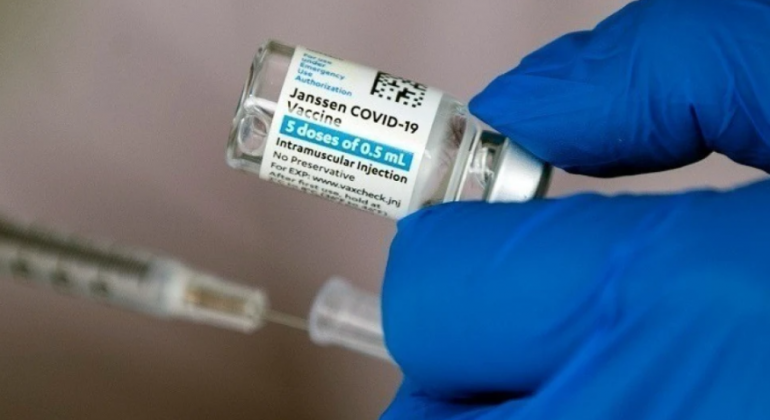Humoral and cellular immunity persists for up to 8 months after vaccination with the Johnson & Johnson coronavirus vaccine, according to a new study.
The duration of immunity to SARS-CoV-2 after vaccination is the subject of extensive research, especially after the rapid transmission of new variants of the virus.
The results of humoral and cellular immunity after vaccination with the Ad26.COV2.S vaccine (Johnson & Johnson - Janssen) were recently published in the New England Journal of Medicine.
If the antigens (Ag) are foreign (non self) then there is in the human CD4 T-Cell lymphocyte capable of recognizing each antigenic peptide.
(https://www.nejm.org/doi/full/10.1056/NEJMc2108829).
The Professors of the Medical School of the National and Kapodistrian University of Athens Evangelos Terpos and Thanos Dimopoulos (Rector of EKPA) summarize the main results of the study.
A total of 20 vaccine-treated and 5 placebo-treated individuals were studied for the development of neutralizing antibodies to SARS-CoV-2 and the production of T-lymphocytes against the virus, 8 months after administration of a dose of the vaccine. (in 10 participants) or 6 months after the second dose of the vaccine, for those who took a two-dose regimen (another 10 participants). Neutralizing antibodies were measured against both the original Wuhan strain (WA1 / 2020) and against variants of B.1.1.7 (alpha), B.1.617.1 (kappa), B.1.617.2 (delta) virus, P.1 (gamma), B.1.429 (epsilon) and B.1.351 (beta).
Neutralizing antibodies were detected
to all vaccine recipients on day 239 (8 months post-vaccination) versus strain WA1 / 2020 regardless of administration of one or two doses of the vaccine. The results were similar for the virus variants. Single dose vaccine recipients had a mean neutralizing antibody titer of 184 against the original strain WA1 / 2020, 158 against the alpha variant, 171 against the kappa variant, 107 against the delta variant, 129 against the P.1 variant (gamma), 87 versus the epsilon variant and 62 versus the beta variant. No differences were observed between those receiving one or two doses of the vaccine, although the study did not have the statistical power to give us this difference.
A significant number of CD8 + and CD4 + T-lymphocytes against the virus were also observed in all vaccinated, 8 months after vaccination.
These data indicate that the Ad26.COV2.S vaccine induced prolonged production of neutralizing antibodies and T-lymphocytes against the coronavirus for at least 8 months after vaccination. In addition, production of a sufficient number of neutralizing antibodies to SARS-CoV-2 variants was observed, including the more contagious variant B.1.617.2 (delta) and the partially neutralizing variants B.1.351 (beta) and P.1 (gamma ). These results further support the value of the Ad26.COV2.S vaccine to combat the global pandemic Covid-19.
What is humoral immunity?
The use of the term humoral immunity is intended to indicate that the products of this immune system (Abs antibodies) can circulate in body fluids (juices), such as blood, extracellular fluid, and various organ secretions.
The cells responsible for the manifestation of humoral immunity are the so-called B-lymphocytes
Humid immunity serves to protect exogenous antigens, ie microorganisms that do not enter the cells of our body (extracellular bacteria) as well as against the toxins they produce.
Source: Protothema.gr
